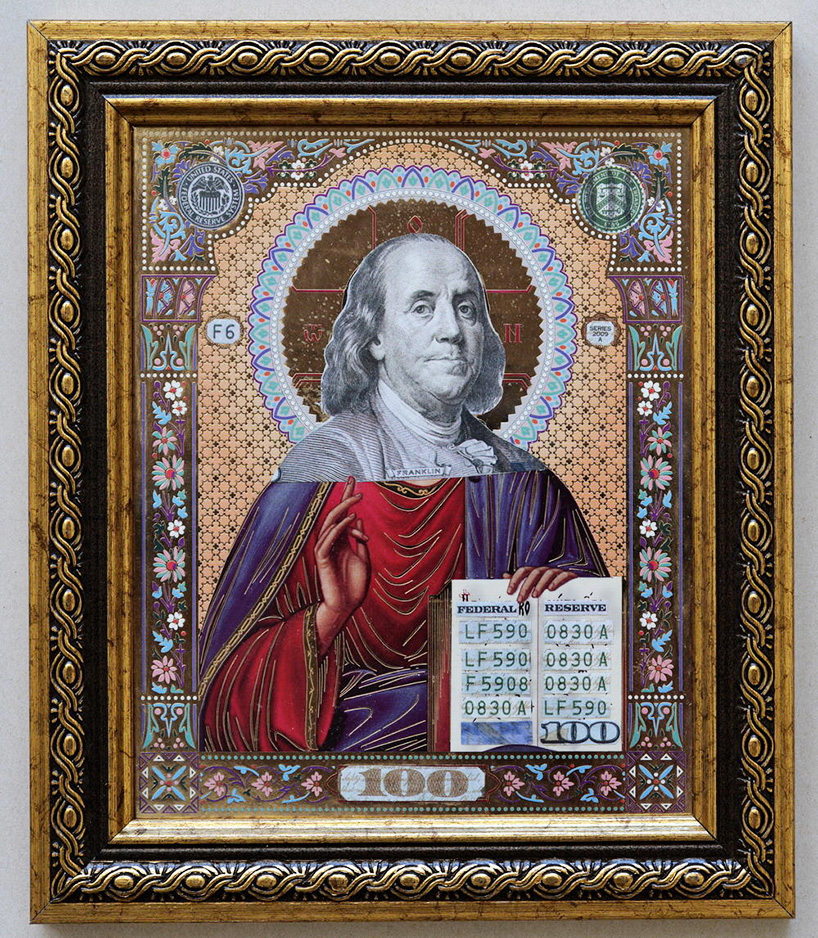It's All About the Money, Money, Money
Early on in the semester, we wrote about what the American Dream means to us, and the responses were varied and unique. Walter Fisher sums up the differences in the American Dream quite nicely, arguing in his speech, "Reaffirmation and Subversion of the American Dream". He breaks up the American Dream into two, broad interpretations: that there is a materialistic version of the dream, and a moralistic version of the dream, and that the two candidates in the 1972 election represented each aspect of the dream.
Fisher analyzes how Senator McGovern, the candidate viewed as being moralistic, "aroused feelings of guilt, fear, and threat", making him "susceptible to the traditional charges made against such leaders" (163). He claims that all these moralistic leaders fall prey to these claims. Those charges include being seen as "utopian", "radical", and "unrealistic" (163). In short, people weren't buying into his idealistic policies and didn't think they were possible, no matter how great they sounded. I immediately thought of Bernie Sanders, who was seen by many as being "unrealistic" based on his goal of making college free and making Medicare free for all, to name a few of his "unrealistic" policies. Bernie's policies prioritize everyone and are the definition of moral. Fisher also claims that "moralistic values... arouse fear and feelings of threat" (162). His policies would have attacked the economic inequality that plagues America, something the rich definitely would not have wanted. And, as they have the most pull in politics and the most influence, it comes as no surprise that a lot of people tagged Sanders as being "unrealistic" Unfortunately, like McGovern, he didn't get elected; he didn't even get his party's nomination. The American people weren't sold by McGovern or Sanders' moralistic interpretation of the American Dream, reflected in their policies.
Pointing out the fact that only about 56% of Americans voted in the 1972 election, Fisher highlights the potential "widening and deepening of disenchantment with politics and the American Dream" (167). In the 2016 election, only about 60% of Americans cast their vote. While this is an increase from the last few elections (only a few percentage points, but still), this is still not a lot of people, especially when other countries have much higher numbers. While the increase is promising, it is still very clear that there is a lot of disenchantment with American politics. What this also says is that voters don't have that much confidence in the system, which is dominated by large corporations, and people know this. Huh, seems like this has been discussed a lot this semester. Interesting.
Another claim he makes is that the materialistic dream, which Nixon represented, "is compassionless and self-centered" (161). Interestingly enough, Chomsky paints the "masters of mankind" as being compassionless and selfish as well. These are the people who have the most influence in politics today. The election of Donald Trump was a clear fight back against their grasp on politics today. Trump, being a Washington outsider, was viewed as many who will break this cycle. Only time will tell if he does loosen their grip on American politics, but the results from last November is very indicative of their disillusionment with the 1% and the policies and system that benefit them.


I liked the connection between McGovern and Bernie Sanders- I didn't see it at first, but it makes sense the way you describe how his policies would attack the wealthy elite. Many called Bernie a Socialist because of his ideas of free college and healthcare, and I wonder if McGovern suffered the same name-calling? It also seems that these policies that are inclusive of all Americans represent the solidarity that Chomsky claims we are losing- perhaps Chomsky has been called a Socialist too? I definitely saw the idea of Trump being part of the materialistic dream as well, and I think that says a lot in proving Fisher's claims right even today.
ReplyDeleteNow that you and Fisher mention it, it is interesting to see how moralistic politicians feel the need to strongly assert their notions of change, as well as the need to feel guilty. The way moralistic leaders do this indicate that politics is seen more and more as a competition rather than a sort of cooperation. I feel that both moralistic and materialistic people are becoming increasingly guilty of this, though.
ReplyDeleteIt does seem like more and more Americans are losing faith in the system, and yes, corporations seem to be at the core of the problem again. It's as if a whole new election system should be created just for them. The individuals of a corporation presumably have their own voice, as well, so why should corporations themselves be ubiquitously treated as individuals, when in reality they are most likely being controlled by a select few?